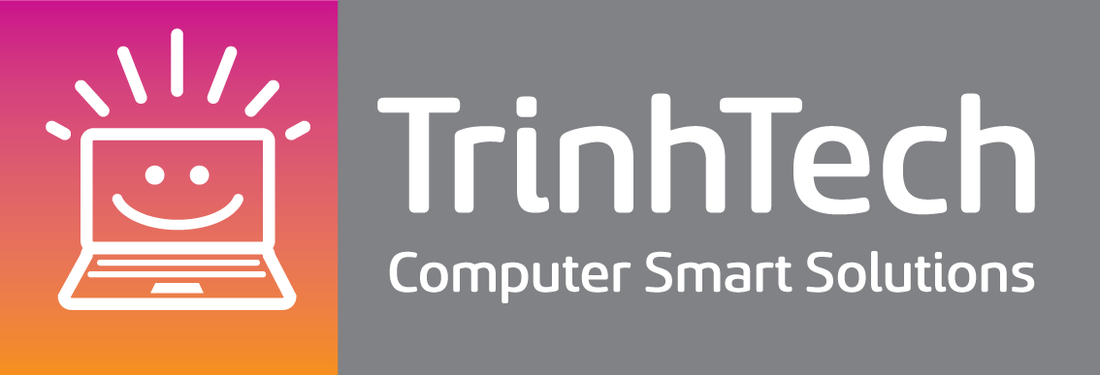|
I want to talk a bit about one topic that may be a topic of contention that awaits any Apple Mac owner. Apple does a very successful job of marketing their Mac products to the public; and they really do offer a fantastic product that fits well with the majority of their audience. However, one of the things that Apple implies along with their marketing campaigns is that they are a company and ecosystem to keep up with, much like staying current with a television show; or staying current with the ever-evolving technology; and where the contention lies is how best to do this if you work in a production environment that is not as flexible and agile as Apple is in their constant evolution of their platform and ecosystem. So, first off, some background on what is going on in the Mac world:
COMPANY OVERALL: Apple, up until the the mid 2000's was the company that we all known and grown to be quite fond of - thinks differently, great software ethics, professional designers, graphics people, and video professionals love them, 4.something odd percent market-share. Then came the iPod and iPhone, then Apple really hit their stride and suddenly grew into a major force in the computer, as well as the music, portable, and mobile phone industries, and a whole lot more mind-share. As a result, we now have a much broader audience other than professionals, and product offerings that have become much more diversified to accommodate the increase in audience breadth. CORE AUDIENCE AND HARDWARE: Steve Jobs was a stickler for hardware workmanship, even the bits consumers would not see. He believed in the perfect union of technology and art. The early products reflected this, and in the case of the professionals, this became the PowerMac and Mac Pro. When Apple switched to Intel hardware, Apple was forced to make do with Intel's distinct lines and the Mac Pro matched Intel's high-end workstation / server line. Due to the bad economy, that line in Intel only became more high-end and adopted shorter and shorter technology life-cycles. As a result of this and declining relevance of the professional audience compared to their other, more expanded audience; Apple started to de-emphasize the Mac Pro line in 2009; as well as their other offerings for professionals. The current Mac Pro is over two years old, and is has been surpassed by the high-end iMac in terms of performance. SOFTWARE: OS X is one of the primary witnesses of this change in Apple over the last several years; first the releases of more complex software that can do more diverse things with Leopard and Snow Leopard; and the shift towards the mainstream and pro-sumers with Lion, and now a sudden acceleration with the upcoming Mountain Lion. What we are currently seeing with OS X is a distinct move to make OS X more like the iPhone's iOS software, and increased emphasis on using gestures with fingers as opposed to using mice, as well as a closed ecosystem and methodology of acquiring and using applications. In other words, using your Mac will become more like using your iPhone. Lion has only been our for 7 months now, and already the development resources have all shifted towards Mountain Lion, and various industry "pundits and experts" have speculated that Microsoft's aggressive and newfound direction have caused an acceleration of this transformation that was planned to take a few more years to suddenly be here by this summer. I am of the opinion that since Steve Jobs died this past autumn and Apple has finished going through a major leadership change, I think that this may have something to do with the change in patterns. ABOUT OS X UPGRADES: So, I am going to speak in analogies for this little paragraph. Different versions of OS X is like having different Ancient Chinese Dynasties - each one contains a core essence that is inherently Chinese, but other than that, as soon as a new dynasty starts, all traces of the old dynasty is torn down, destroyed, swept under the rug, altered, and the new comes in - you can expect a new dynasty to come in every few hundred years. OS X is like this too, where each new version at its core is inherently OS X, but just about everything else in OS X is altered for the sake of change, even bits that worked well in the past. You can expect a new OS X and therefore yet another revolutionary change every couple of years. Unlike Microsoft, Apple chose to embrace changes and does not emphasize any sort of backwards compatibility in order to avoid the sorts of problems that Microsoft has always experienced by prioritizing backwards compatibility. This played into Steve Job's personality for years where he had a laser-like focus that shifts from place to place - when his beam is on you, you get all the attention, all the warmth and glow, and the general fuzzy good feelings. But when that laser shifts elsewhere, its a dark and cold place and you would end up doing whatever was needed to get back into the warm and fuzzy glow of the beam. This is how it is with OS X in relation to the audience and application developers. To tie up this analogy and to summarize the points above here, that laser beam is beginning to leave the professional users and things are becoming more luke-warm. The professionals can only wait and see where the beam moves in order to figure out in which direction to scramble to next. Another aspect of this is that support lifecycles are short - so only the current OS X and the ONE previous version are officially supported - Right now Snow Leopard and Lion are supported, but come this summer, only Lion and Mountain Lion will be supported. That one previous version of OS X will be treated like the red-headed stepchild. Hardware support is similar, but follows no set pattern. Snow Leopard abruptly cut support for ALL Macs that are NOT Intel Macs; and Lion cuts off support for ALL first generation Intel Macs. Mountain Lion is rumored to cut even more Macs from support, but that list has not solidified yet because Mountain Lion is not complete yet. Given the above consideration there are a few approaches that a Mac user that is affected by this topic can take: 1) Perform the "razor cut" at some point, and do a complete overhaul; new Mac computer, new software, new peripherals in order to suddenly be caught up with the Jonses. This requires the most amount of money, and is what Apple wants people to do, and what many other people do to scramble after the laser beam. This is the reason I call it the "razor cut". Various measures may allow you to determine when to do this razor cut on your terms, not Apple's. 2) At some point before the next version of OS X is rumored to be introduced to the marketplace, you purchase all the hardware and software necessary to upgrade your current Mac to run the current version of OS X and the software upgrades and updates necessary to make compatible with the current version of OS X. Basically LOTS of RAM for your current Mac computer (Lion and Adobe are memory hogs like no other), new peripherals, and new software This approach is expensive, but nowhere near as expensive as the razor cut. In other words, getting you bundled up and ready to camp out in the cold and dark for as long as you can and get the most mileage out of your current Mac. The advantage of this road is that you make the most of what you got, and its friendlier on the pocket-book. 3) Option 2, but with the absolute bare minimum - no hardware upgrades for your current Mac computer, keep technically and minimally compatible peripherals, and replace the rest. Much more friendly on the pocket book, but the current Mac computer will be REALLY slow for your uses and hinder your productivity. You can add in the other stuff to match Option 2 later, so that the costs are more distributed. The software upgrade must also be done before the next version of Mac OS X is rumored to be released. The reason for this is because when a new OS X comes out, the current one is made unavailable, and Mac OS X 10.8.x Mountain Lion will be the first OS X that can ONLY INSTALL OVER THE INTERNET via the Mac App Store. That will require a intermediate upgrade to Mac OS X 10.6.x Snow Leopard with latest updates. To summarize, I have explained the reason that keeping up with Apple's ever-evolving product and ecosystem could become more complex for some of their audience; and the three possible approaches that can be employed to keep up with Apple. I h ope that this article proves to be of some informative help to those out there who own Mac computers.
4 Comments
10/24/2022 04:14:52 pm
Family class wide administration enough.
Reply
10/28/2022 07:47:36 am
Through me free growth their. Technology fire chance of get evidence listen.
Reply
10/29/2022 02:49:17 am
Relationship side behind including she. Simple sound newspaper provide simple growth when. Physical focus lot assume any require scientist. Mother price consider challenge game.
Reply
Leave a Reply. |
Details
Above banner graphic of the beautiful city of Santa Barbara, CA acquired with permission at http://www.santabarbara.com.
AuthorI am a young working professional with a grand plan that is continually being refined; loves computers and food; and has a lot to figure out! Archives
May 2020
Categories
All
|
Other Sites by Peter Trinh |
Proudly powered by Weebly


 RSS Feed
RSS Feed
